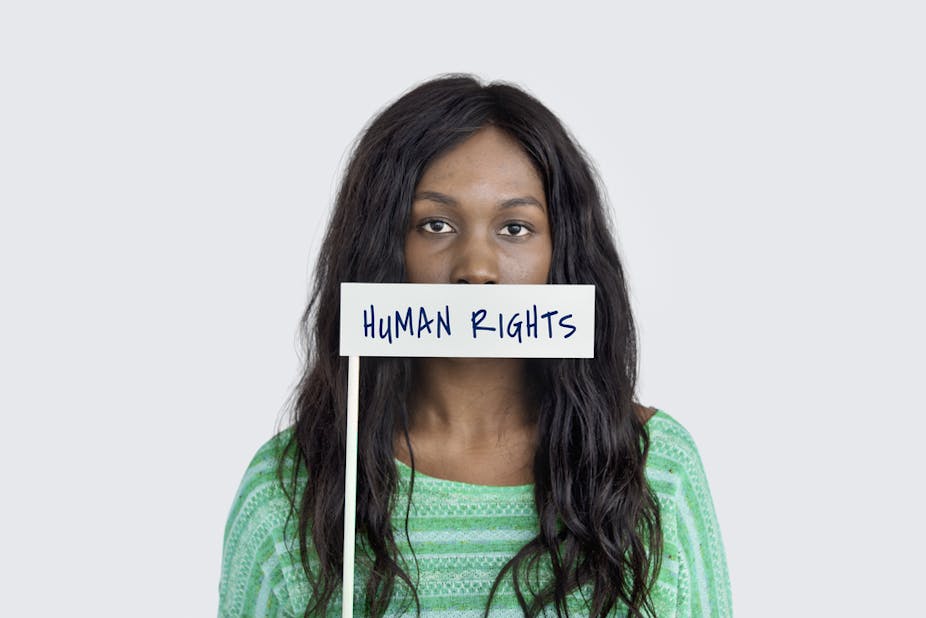The British government has said that the Charter of Fundamental Rights of the European Union will not be converted into UK law in the “great repeal bill”. The Labour party in turn promised to replace the great repeal bill with an EU Rights and Protections bill. Reports say this means keeping the charter.
The charter provides modest but real social protections. One of these, the right to health, was used last year by a High Court judge in London to counter the private business rights of the tobacco industry.
If the government’s intention prevails, removing social and environmental rules – for example, on employment rights, air quality standards or pesticide control – will become easier. It is also consistent with the refusal of successive UK governments to grant its citizens social and economic rights, such as rights to an adequate standard of living, including food and housing, and to fair and just working conditions. There’s a long back story here, which has nothing to do with the EU.
The 1948 Universal Declaration of Human Rights includes many rights that have traditionally been described as “civil and political” on the one hand – such as freedom of expression and privacy – and “social and economic” on the other. Subsequent attempts to transform the non-binding declaration into a single binding international bill of rights became caught up in Cold War politics. Western governments argued that economic and social rights were not as enforceable as civil and political rights, and were to be progressively implemented rather than applied immediately.
This is how the UK put it in 1947, when Lord Dukeston (a trade unionist) submitted a draft of a single treaty to the UN Commission on Human Rights’ drafting committee which omitted social and economic rights:

In the event, the UK accepted international legal obligations, but in the form of two separate treaties which were adopted by the UN General Assembly on December 16, 1966 – the International Covenant on Civil and Political Rights (ICCPR) and the International Covenant on Economic, Social and Cultural Rights (ICESCR) – and the second class status of the latter was assured.
The UK has been repeatedly criticised over the last 20 years by the UN Committee on Economic, Social and Cultural Rights – in 1997, in 2002, in 2009, and most recently in July 2016 – for not incorporating the ICESCR into UK law; it has urged it to do so and to ensure full access to effective legal remedies.
On the last occasion, the committee also:
Expressed its serious concern about the disproportionate, adverse impact that austerity measures introduced in 2010 are having on the enjoyment of economic, social and cultural rights by disadvantaged and marginalised individuals and groups;
Reminded the UK of its legal obligation to use its maximum available resources for progressively achieving the full realisation of such rights;
Noted with concern that “reforms to the legal aid system and the introduction of employment tribunal fees have restricted access to justice in areas such as employment, housing, education and social welfare benefits”.
The European landscape
This contrasts with the position for civil and political rights, where the overlap of the covenant on civil and political rights with the European Convention on Human Rights – a non-EU treaty under the Council of Europe – and its incorporation by the 1998 Human Rights Act, has led to stronger enforcement – hence the prime minister’s wish to ditch that as well.
But the convention does not include social and economic rights. They are covered by another Council of Europe agreement, the European Social Charter. Unlike the convention, this charter has not been incorporated into UK law. This makes the EU’s Charter of Fundamental Rights all the more important for social and economic rights as it has legal effect in the UK – for as long as the European Communities Act 1972 remains in place. That’s the act of parliament that makes EU law an integral part of UK law, and which the great repeal bill will get rid of.
But having “legal effect” is not the same as being “incorporated”. The EU charter is weaker in the UK than the human rights convention because of its “non-justiciability”: it cannot be used by people to go to court to argue violation of their rights (a sword), but it has legal effect because it can be used as a shield to protect socially beneficial legislation. This is the result of the Blair government, consistent with the UK’s position in 1947, giving the UK’s negotiator of the charter, former attorney general Lord Goldsmith, a specific brief to prevent justiciability.
But Blair went further, and told the House of Commons that it was “absolutely clear” that the UK had an opt-out from the charter. This wasn’t true, as the Commons European Scrutiny Committee made clear in 2014, and as the High Court’s use of the charter last year in the tobacco industry case demonstrates.
Social rights in legally binding agreements at the UN and in Europe acknowledge our common vulnerability and needs. It is a sad indictment of our political process that politicians have been able to fend off for so long attempts to give them real legal teeth in the UK.
The future of the charter’s protections hangs in the balance – and depending on the make up of the House of Commons after the election, it may only be a matter of time before the prime minister’s wish to get out of the European Convention on Human Rights is back on the agenda. We are going backwards.

